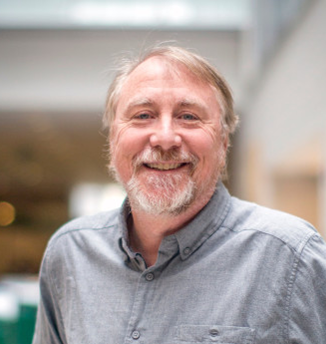Richard Lenski, founder of the long-term evolution experiment, to deliver 2023 Darwin Day Lecture
Richard Lenski, a world-renowned evolutionary biologist whose long-term evolution experiment of the microorganism Escherichia coli has been running for over three decades, will deliver the 2023 Darwin Day Lecture on Wednesday, Feb. 8. Lenski’s talk, part of Vanderbilt’s Evolutionary Studies Initiative International Darwin Day celebrations, will begin at 3:10pm CT in Buttrick 101, preceded by snacks and soft drinks. The event is free and open to the public.
Lenski is a fellow of the American Academy of Microbiology and the American Academy of Arts and Sciences, a MacArthur fellow, and a member of the US National Academy of Sciences. In 2021, Lenski received the Lifetime Achievement Award from the Society for the Study of Evolution.
Researchers have long-pondered the repeatability of evolution. The paleontologist Stephen J. Gould famously wondered what would happen if we could replay the “tape of life”. Would evolution follow the same paths as it had once before? Or would each rewind result in a totally different outcome? To experimentally approach this question, Lenski began in 1988 to cultivate 12 independent E. coli populations, all from the same stock. From this simple experiment, the LTEE (Long Term Evolution Experiment) was born. 35 years later, these 12 populations have evolved independently for over 75,000 generations and have been the subject matter of over 150 studies from researchers all over the world.
Lenski and his collaborators found that the 12 populations show striking similarities in their evolutionary trajectories over time. However, only one of the 12 populations ever evolved the ability to consume citrate. While there is potential for some striking differences, Lenski’s experiments suggest that evolution, under the same general conditions, will proceed in the same general ways.
Lenski and his collaborators have also done pioneering work on digital evolution using Avida, an open-source computational platform for studying artificial life. Using Avida, they showed that the process of evolution can produce complex features from simpler building blocks. Prior to Lenski’s studies, creationists had argued that such a process was impossible.
Lenski earned his B.A., at Oberlin College in Ohio (1976) and his Ph.D. from the University of North Carolina at Chapel Hill (1982). He was a postdoctoral fellow at the University of Massachusetts at Amherst. He then spent a year as a visiting professor at Dartmouth College and earned a tenure track position at the University of California in Irvine. He has been a professor at Michigan State University since 1991.
The Vanderbilt Evolutionary Studies Initiative was established in August 2019 with the aim of uniting a remarkably diverse array of scholars from a variety of disciplines with broad interests and expertise in evolution-related fields.

